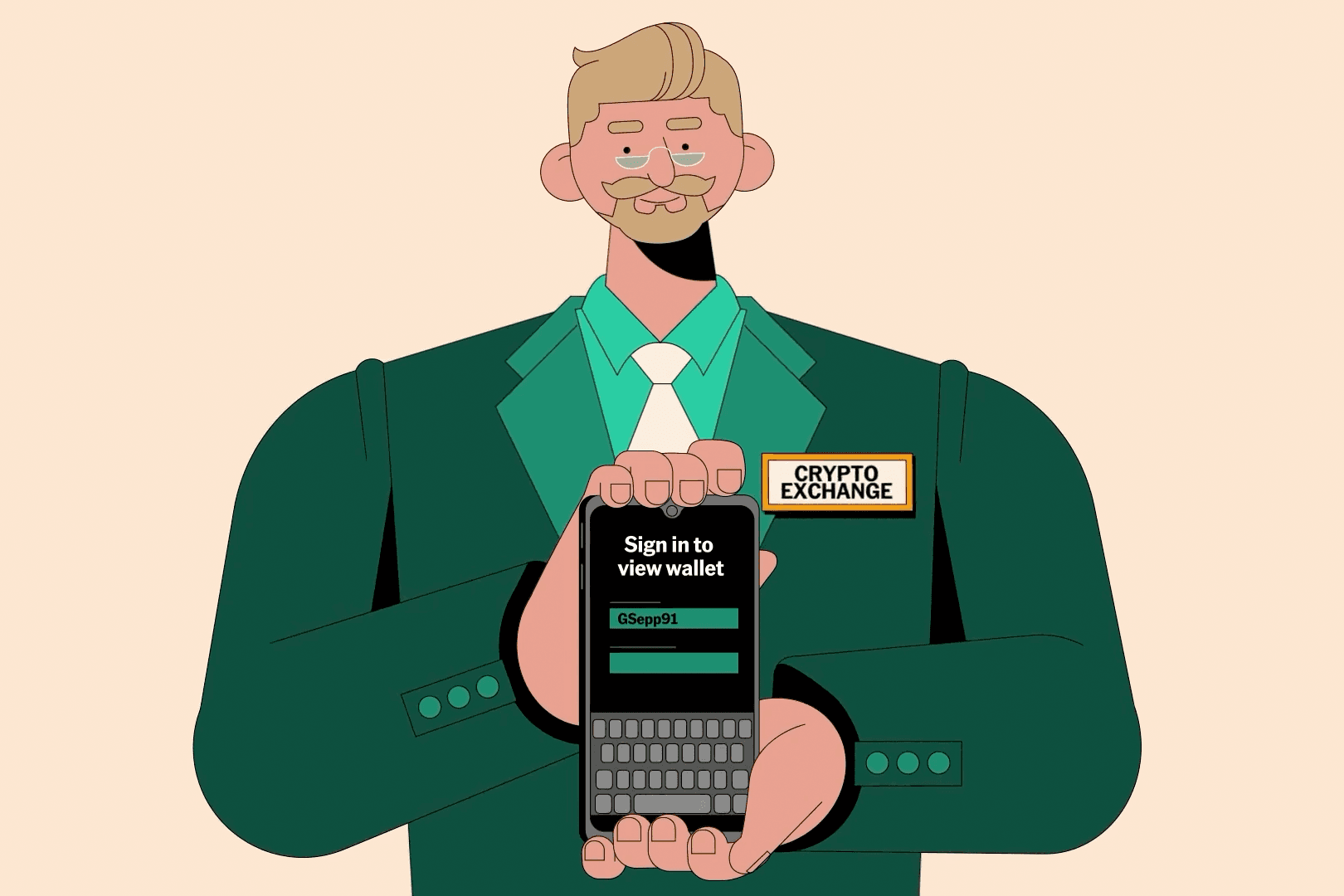A crypto wallet is a place where you keep your private keys—your passcodes that allow you to look at your crypto (how much you own) and also access and transfer your crypto.
There are different kinds of crypto wallets.
You can hold your own wallet on a hardware device, like a USB stick—that's called a cold wallet. Think of it like a lockbox you keep offline and only connect to the internet when you want to make a transaction. Cold wallets are very secure because they are offline most of the time, but if you lose the device or your passcodes (private keys or recovery phrase), you could permanently lose access to your crypto.
Because of that risk, some people prefer to use what's called a hot wallet, which is connected to the internet and easier to access.
There are two main types of hot wallets:
Custodial hot wallet: You can keep your crypto on a crypto exchange. You’ll still need a username and password to log in, but the exchange controls your private keys and handles all the technical storage for you. This is called a custodial wallet because the exchange acts as a custodian. Keep in mind that your rights and protections will depend on the exchange’s terms of service.
Non-custodial hot wallet: If you don’t want to use a cold wallet and don’t want an exchange to hold your crypto, there’s a third option: a non-custodial hot wallet. These are apps or browser extensions that let you control your own crypto, including your private keys, but you don’t have to worry about also safeguarding a physical device like an UBS stick. The wallet provider doesn’t have access to your funds—you do.
Understanding private keys and recovery phrases
We’ve talked a lot about private keys and recovery phrases. Think of these as your crypto passcodes—but with even more power and responsibility.
Your private key is like the master key to your digital safe. It proves that you own your crypto and lets you send or move your funds. If you lose your private key, you lose access to your crypto—forever. This is why some people are just more comfortable using an exchange because all you need to do is log in with a password, and the exchange stores everything else.
Your public address (also called your wallet address) is the part you can share with others. It’s like your email address for crypto—people use it to send you funds. But no one can move anything out of your wallet unless they have your private key. So while the public address is safe to share, the private key must stay completely secret.
Your recovery phrase is a backup copy of your private key. It’s usually a list of 12 or 24 random words. You can use this phrase to restore your wallet. These phrases are especially important if you’re using a non-custodial hot wallet—because you are the one holding the keys, not a company.
